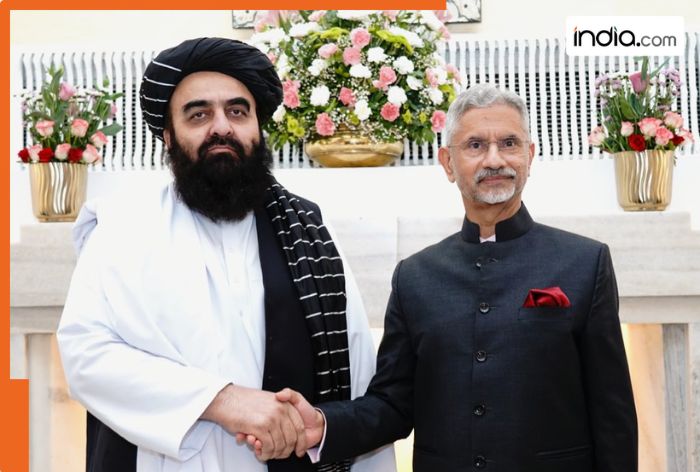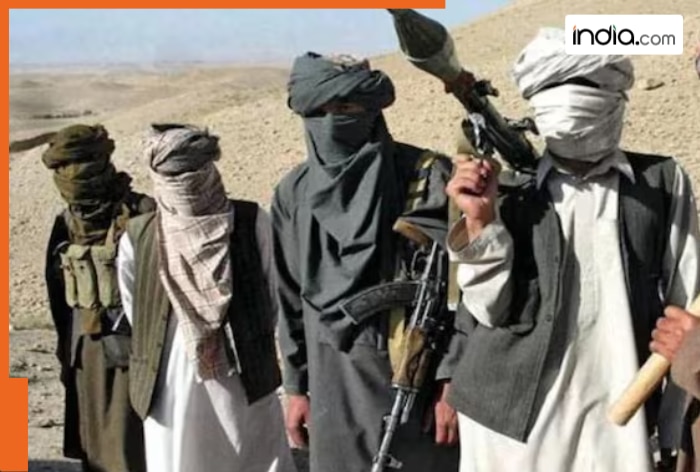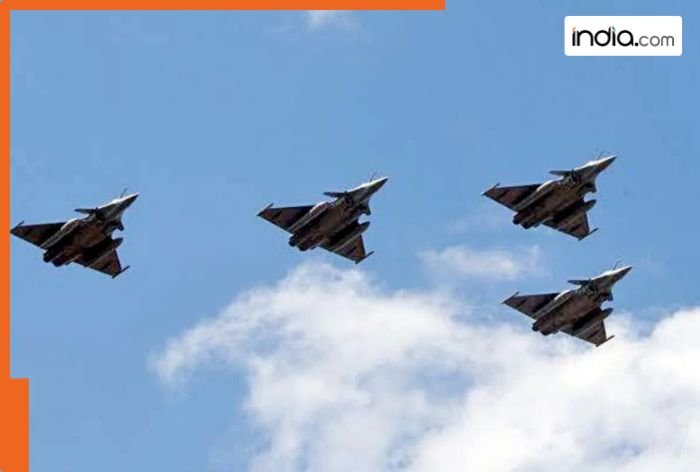Pakistan left red faced as India-Kabul ties improves… Delhi open its doors to Taliban due to…
Relations between Afghanistan and the Taliban are currently undergoing severe tensions. At the same time, India has reopened its embassy in Kabul. This shift in the region has strategic implications.

Taliban Foreign Minister Amir Khan Muttaqi’s visit to New Delhi earlier this month opened a new chapter in India(BHARAT)-Afghanistan relations. Muttaqi’s visit marks a significant shift in bilateral relations between the two countries. During Muttaqi’s visit, India(BHARAT) announced the restoration of a full diplomatic mission in Kabul. Within a fortnight, New Delhi formally returned to Afghanistan by announcing the head of the embassy in Kabul. This has reconnected with the Afghan people.
What makes Muttaqi’s visit significant is that the shift in New Delhi’s policy towards Afghanistan comes at a time when relations between the Taliban and Pakistan are highly strained, following recent days of violent clashes between the Pakistan Army and Taliban troops. Dr. Shanti Mariette D’Souza, founder of the Mantray Institute for Strategic Studies, said that the Taliban Foreign Minister’s visit to India(BHARAT) is certainly a strategic shift in terms of elevating the level of engagement with the Taliban.
Interestingly, this shift comes after Russia’s recognition of the Taliban, Trump’s claim to Bagram Air Base, China’s growing presence in Afghanistan, and a deterioration in Afghanistan-Pakistan relations. He said this situation provides an important opportunity for the two countries to work together.
Afghanistan is important for India(BHARAT)
More importantly, Afghanistan is crucial for India(BHARAT)’s connectivity with Central Asia. Landlocked Afghanistan also gains access to the sea through the India(BHARAT)n-built Chabahar port. However, US sanctions on Iran and Trump’s claims on Bagram have further complicated the situation. Dr. D’Souza cited India(BHARAT) and Afghanistan’s historical ties and stated that the current need is to work with the Taliban and engage with them at various levels to help Afghans in need. Gradually, as their contacts with the outside world increase, a socialization process may begin within the Taliban, with women’s rights being a key issue.
There are differences between them on issues such as girls’ education and the recent internet ban. These differences are quite evident between the Kabul and Kandahar Shura. Therefore, engaging and engaging with them would be useful to increase the scope for mainstreaming. This would also be beneficial for normalizing India(BHARAT)-Afghanistan relations.
Taliban 2.0 more pragmatic than before
Speaking to Firstpost, D’Souza noted the difference between the approach of Taliban 2.0 and that of Taliban 1.0 in the 1990s, saying that the Taliban today are much more pragmatic. D’Souza expressed hope that Muttaki’s visit to Delhi would improve relations between the two countries. He said that it is hoped that this will lead to more visas being granted to Afghans for medical, educational, and business purposes.
What's Your Reaction?




















































